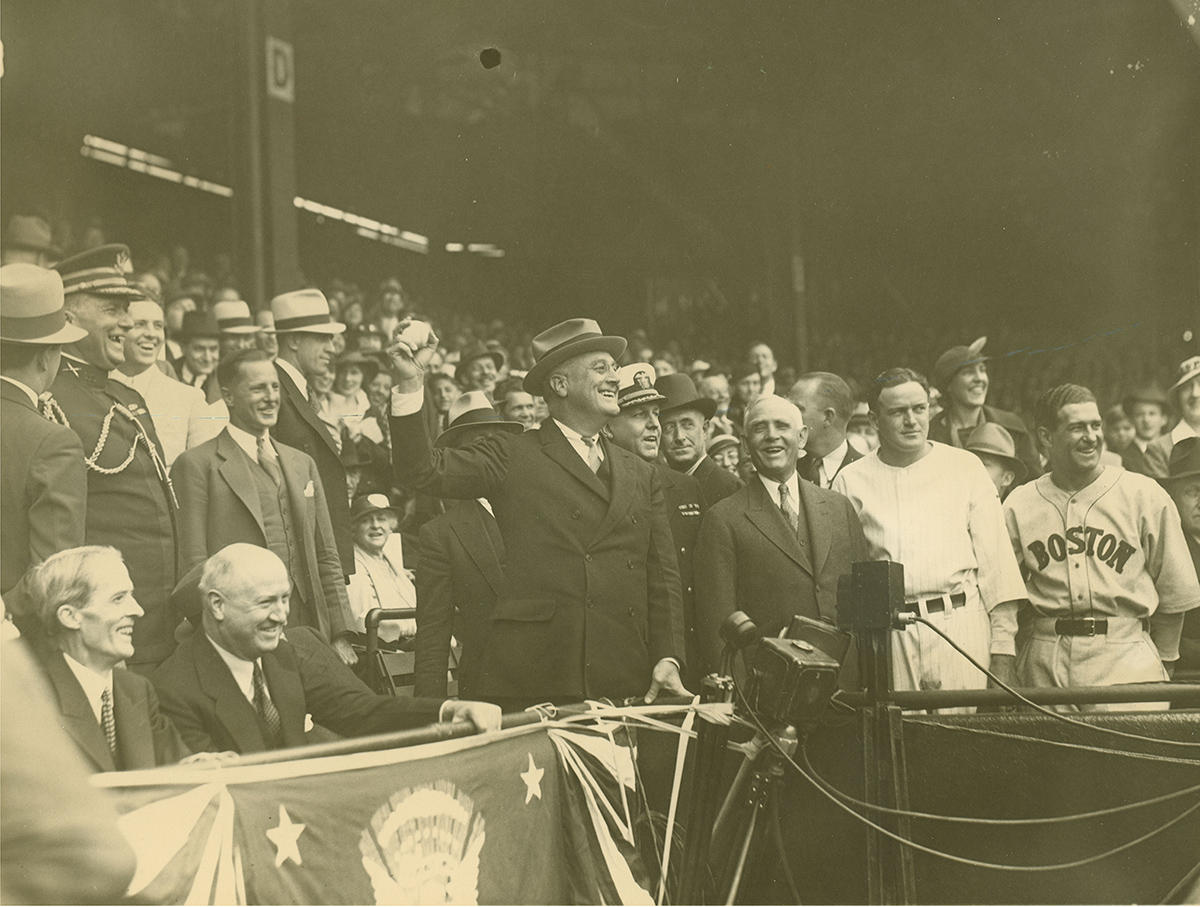During World War II, when the United States faced tremendous challenges on multiple fronts, President Franklin D. Roosevelt recognized the importance of maintaining a sense of normalcy for the American people. In an inspiring move, FDR encouraged Major League Baseball (MLB) to continue despite the war effort. By doing so, he not only provided a distraction from the hardships of the time, but also demonstrated the resilience and determination that defined the American spirit. This article delves into how FDR’s leadership and persuasive tactics kept the national pastime alive, providing solace and hope during one of the most trying periods in American history.
FDR Recognized the National Impact of Baseball:
Franklin D. Roosevelt understood that MLB held a special place in the hearts of the American people. Baseball was more than just a game; it represented a sense of unity, pride, and shared experiences. As such, FDR recognized the significance of maintaining the sport during wartime. With his deep understanding of the nation’s psyche, he saw baseball as a unifying force, capable of lifting spirits and keeping morale high.
The Green Light Letter:
In January 1942, with the war in full swing, the Commissioner of Baseball, Kenesaw Mountain Landis, wrote to President Roosevelt seeking guidance on whether professional baseball should proceed or be temporarily suspended. Responding promptly, FDR penned what came to be known as the “Green Light Letter,” assuring Landis that he believed baseball should continue despite the difficult circumstances. This letter served as a moral booster for both players and fans, emphasizing the importance of preserving a semblance of normalcy amid the chaos of war.
The Roosevelts’ Personal Connection to Baseball:
An ardent baseball fan himself, Franklin D. Roosevelt held a deep personal connection to the sport. Attending games regularly, he often used baseball as a metaphor when addressing the American people, conveying messages of unity and perseverance. Additionally, First Lady Eleanor Roosevelt actively promoted the sport through her participation in charity games and showcasing her own baseball skills. The Roosevelt family’s enthusiasm for baseball further cemented FDR’s determination to keep the game alive during wartime.
Baseball’s Role in Maintaining Morale:
By urging MLB to continue during the war, FDR recognized the power of sports in uplifting spirits and maintaining a sense of normalcy. Baseball became a symbol of the American spirit, providing solace and hope during a time when citizens faced enormous challenges and personal sacrifices. It served as a unifying force, bringing people together regardless of their differences. By allowing baseball to continue, FDR ensured that the American people had an outlet for entertainment and camaraderie, fostering a sense of resilience and optimism.
Franklin D. Roosevelt’s unwavering support for Major League Baseball during World War II was a testament to his leadership and understanding of the American people’s needs. By encouraging the continuation of the national pastime, FDR gave the American public a much-needed distraction from the hardships of war, fostering a sense of unity and hope. Through his “Green Light Letter” and personal passion for the sport, FDR demonstrated that even in the face of adversity, the American spirit could persevere. His commitment to maintaining a sense of normalcy through baseball provided a vital source of inspiration during one of the darkest periods in American history.
